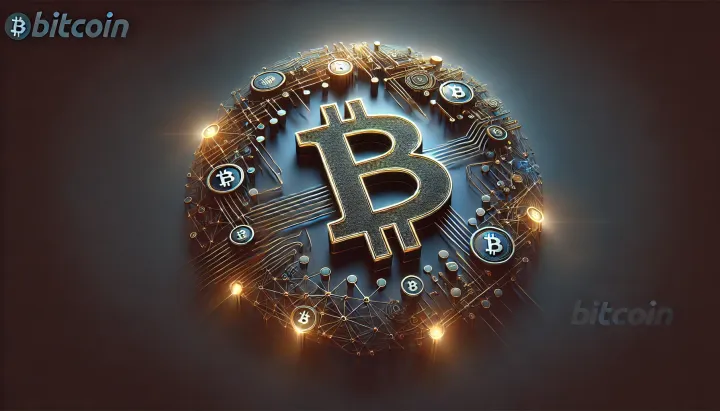Bitcoin as a Hedge Against Government Money Printing
The September 19, 2024 episode of Bitcoin for Millenials features Daniel Sempere Pico discusses the increasing dangers of government money printing and the role Bitcoin plays as a safeguard against the collapse of fiat currencies.

Briefing Notes
My 'briefing notes' summarize the content of podcast episodes; they do not reflect my own views. If you have comments about this briefing note, please leave a comment below (requires signing up for a free blog subscription). Note that some of the podcast episodes I summarize may be sponsored: don't trust, verify, if the information you are looking for is to be used for decision-making.
Summary
The September 19, 2024 episode of Bitcoin for Millenials features Daniel Sempere Pico exploring how unchecked government money printing is leading to economic instability and why Bitcoin offers a solution as a long-term store of value. The conversation highlights the systemic risks of fiat currencies, the appeal of Bitcoin for Millennials, and the broader socio-economic implications of Bitcoin adoption as a decentralized alternative to traditional financial systems.
Take-Home Messages
- Bitcoin provides a reliable store of value for individuals seeking to protect their wealth from inflation and government fiscal mismanagement.
- Government money printing is unsustainable, and Bitcoin’s deflationary nature offers a critical hedge for future financial stability.
- Millennials can build long-term financial security by incorporating Bitcoin into their wealth strategies, protecting themselves from fiat devaluation.
- Legacy media continues to misrepresent Bitcoin, contributing to skepticism and misinformation, but accurate education can shift public perception.
- Bitcoin’s decentralization disrupts traditional finance, offering an alternative to centralized control and promoting financial sovereignty.
Overview
In the September 19, 2024 episode of Bitcoin for Millennials, Bram Kanstein interviews Daniel Sempere Pico, who shares insights into Bitcoin’s unique role as a safeguard against the failures of fiat currency systems. The discussion opens by addressing how governments are compelled to print money to avoid default, creating a cycle that devalues fiat currencies and erodes purchasing power over time. Daniel reflects on his journey from initial skepticism to fully embracing Bitcoin in 2020, citing it as a long-term solution to wealth protection.
The podcast focuses heavily on the concept of Bitcoin as a decentralized monetary network, comparing it to traditional investments like stocks or index funds. Daniel emphasizes that unlike stocks, which carry operational and managerial risks, Bitcoin is a stable, low-maintenance asset with intrinsic value derived from its fixed supply and deflationary nature. He presents Bitcoin as a particularly valuable tool for Millennials, who face economic challenges that make traditional financial systems less reliable for building wealth.
The conversation critiques the role of legacy media, which has consistently misrepresented Bitcoin, contributing to the skepticism of the general public. Daniel also discusses the biases of the yuppie elite, who trust in traditional financial systems despite the cracks appearing in fiat currency stability. As people become more aware of the weaknesses in these systems, Daniel predicts that Bitcoin adoption will increase as individuals seek out alternatives that provide long-term financial security.
Stakeholder Perspectives
- Millennials: Millennials are positioned to benefit the most from Bitcoin as they seek to protect their wealth amid rising costs, stagnant wages, and unreliable traditional financial strategies.
- Governments: Government reliance on fiat printing creates instability, but the adoption of Bitcoin could offer a way to stabilize national economies in the long term, though it challenges their control over monetary policy.
- Financial Institutions: Financial institutions face both a threat and an opportunity in Bitcoin, as it disrupts traditional models but also opens new avenues for investment products and services.
- Legacy Media: The media’s role in misrepresenting Bitcoin has led to public skepticism, but accurate, unbiased reporting could help bridge the gap in understanding and drive broader adoption.
Implications
The discussion highlights the need for policymakers, financial institutions, and individual investors to reconsider their approach to long-term wealth management. Governments, in particular, are at risk if they continue relying on money printing as a stopgap for economic issues, as it will only further erode public trust in fiat currencies. For Millennials, Bitcoin offers a means of financial security that can withstand the risks posed by inflationary policies. The broader economic implications include a potential shift toward decentralized financial systems, challenging the status quo of centralized banking and governance.
Future Outlook
As governments continue to grapple with debt and inflation, Bitcoin could serve as a hedge, providing stability in the face of growing economic uncertainty. Millennials are likely to be at the forefront of this shift, integrating Bitcoin into their long-term wealth strategies. While challenges remain, particularly in the form of regulatory barriers and media skepticism, Bitcoin’s potential to replace or supplement fiat currencies on a global scale could reshape the financial landscape over the next decade.
Information Gaps
- How might the global financial system transition if fiat currency collapses and Bitcoin becomes more widely adopted? This question explores the mechanics of a large-scale financial shift and whether Bitcoin can support such a transformation.
- What impact will Bitcoin's deflationary model have on consumer behavior in inflationary fiat economies? Understanding how Bitcoin influences spending and saving habits in an inflationary environment will be key for policymakers.
- How does the growing U.S. government debt influence Bitcoin’s appeal as an alternative store of value? As government debt spirals out of control, this question seeks to explore how Bitcoin’s role as a hedge against fiscal irresponsibility might expand.
- How will Bitcoin’s network model challenge traditional banking systems in the next decade? Exploring the potential for disruption in the banking sector could provide insights into the future of financial services.
- How can Bitcoin help Millennials secure financial stability amid rising costs and declining faith in traditional investment vehicles? Addressing this question will help inform wealth-building strategies for younger generations in a challenging economic environment.
Broader Implications
Bitcoin as a Global Store of Value
The podcast emphasized Bitcoin’s role as a hedge against inflation and government mismanagement of fiat currencies. If inflationary pressures continue, Bitcoin could become a globally recognized store of value, immune to monetary manipulation. This adoption could lead to its wider use in regions with unstable economies, providing individuals and institutions a reliable alternative for preserving wealth.
Shifting Power from Centralized to Decentralized Systems
As Bitcoin adoption increases, traditional financial institutions may face disruption due to the decentralized nature of Bitcoin’s network. The lack of reliance on centralized control challenges existing financial structures, forcing governments and regulators to adapt. This shift may lead to new regulatory frameworks that account for decentralized financial networks.
Financial Empowerment for Millennials
Millennials, as discussed in the podcast, face an economic landscape that is increasingly hostile to wealth accumulation through traditional means. Bitcoin offers a unique opportunity for younger generations to secure their financial futures, independent of inflationary fiat systems. The broader implication is that Bitcoin could become a cornerstone of Millennial wealth-building strategies, allowing them to bypass legacy financial hurdles.



Comments ()